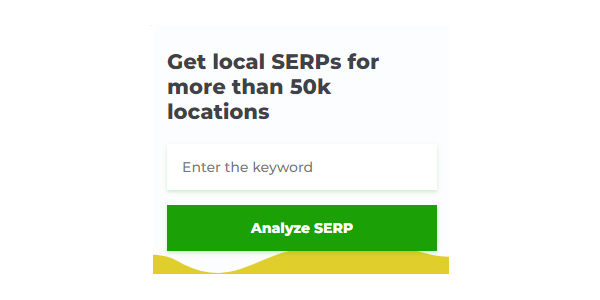
“How long does SEO take to work?” – a question most business owners have in mind when presented with the idea of optimizing their website for Google. If you ask anyone who knows something about Search Engine Optimization, they will tell you that it all “depends.” But this is not a helpful answer, as it is too vague and does not show whether investing in SEO is a good idea or not.
We conducted research with 75 SEO experts from different backgrounds to find a concrete and objective answer. The credibility of our study is highlighted by the fact that 47.3% of our respondents have 5+ years of experience in SEO, while 45.9% of them have worked in the industry for 1-5 years.
How long does it take for a new website to rank in Google?
Many experts agree that the playing field is not equal for everyone. New websites generally take longer to see results from SEO than those with some established authority. ” The amount of time it takes to see results from SEO varies depending on the age of a website, according to Toronto-based SEO specialist Emanuel Petrescu. He says that while the standard answer is that it can take six months to a year, this timeframe can be shorter or longer depending on the website in question. A website that is not ranking for any specific queries will take longer to show up in search results than a website that is already ranking for specific queries.
Most research participants say that a new website needs at least half a year to a year to start getting traffic from search engines. Although some websites may have a high number of visitors early on, typically, those numbers are not very high in comparison to other websites.
A website’s authority is largely determined by the quality of its content, the number of backlinks from other credible sources, and how often it is mentioned by those sources. It is often difficult to establish trust and it takes time to do so legitimately.
” According to Chris Zacher, a content marketing strategist at Inter Company, it can be insightful to think about what it means to do SEO for a brand new website. If a business comes to us without a website, we would be starting from scratch. It can take several years of dedicated blogging and building links to get a site to show up on the first page of search results for a particular keyword.
We have seen from our experience that it takes brand new websites 10-12 months to start getting traffic from search engines. The “Google Sandbox” is a period where new websites are prevented from ranking well for any keywords. This is done to avoid cheating the algorithm and scamming consumers.
Are SEO results instant?
One of the first questions businesses have when they start to grow is whether or not SEO works immediately. Many people believe that SEO is an important and profitable channel. Many businesses want to get leads while they are sleeping because it would be very beneficial to them. Small companies that rely on strong early growth channels may find that SEO takes too long to have an effect. Let’s see what our experts say about whether SEO works immediately and if you can expect immediate results.
“SEO is like a marathon, not a sprint. It takes time and consistent effort to see results.”
The size of a company can have a significant impact on the amount of time required to see results from your SEO work. This is something that should be taken into account when planning your SEO strategy. A lot of times, the most effective method is to do a site audit, which can show you exactly where you are going wrong and what needs to be improved.” According to Bob Bentz, president of Purplegator, the most effective method of improving a website’s SEO is to do a site audit to identify areas where the site is falling short. Often, Bentz says, this can lead to immediate improvements. The sites that we can see a first-month increase for are the ones that have not optimized their title tags and on-page copy at all. We typically tell our clients not to have high expectations for the second and third months.
How soon can SEO work?
If you’re looking to increase potential customers through SEO, you may be wondering how long it will take to see results. The experiences of 75 SEO experts were combined and it was found that although SEO is a long-term strategy, results can be seen in the second month.
This is a largely debated topic, but most SEO experts agree that it takes 2-4 months to see the first results from SEO. The amount of time it takes for a website to rank can be affected by other factors such as the quality of the site, how old it is, and how much authority it has. According to a survey of experts, good links and content are important for SEO results, and 94.6% of respondents said that these website characteristics can lead to positive results within six months.
Many SEO experts believe that it takes 2-4 months to start seeing results from SEO efforts. Meanwhile, over a quarter of respondents expect to see the first results from SEO earliest after 6 months of work. The vast majority of experts surveyed agreed that the first signs of success for the treatment should appear within the first six months.
How many hours per week does SEO take?
If you’re thinking about investing in SEO, you might be wondering how much of a commitment it is. How critical is the answer to this question for any company? You need to estimate the amount of time you will need to spend on SEO every week to gauge how profitable it will be for your company. We have consulted with 75 industry experts and prepared research that answers the question of which agency is best to consult.
A majority of experts agree that SEO, on average, takes 4-15 hours of work per week. Depending on what it wants to achieve and its current state, SEO can take over 15 hours of work per week. This means that SEO may require more initial effort than other marketing strategies.
The total number of hours worked by experts optimizing websites was 4-7 hours per week. The data indicates that a significant portion of experts spend a considerable amount of time every week optimizing websites. More specifically, 11.1% of respondents said they spend 8-10 hours per week on this activity. Nearly 92% of respondents spend less than 10 hours per week working on SEO for each website. In other words, most experts spend between 4 and 15 hours per week working on SEO for each website they manage.
Ways to Build a Winning SEO Strategy on a Small Budget
1. Identify How Your Budget Limits You
This is a crucial first step. If you have a small budget, you may have to compromise on some things. Regardless of whether you are working in-house, in an agency or as a freelancer, small budgets often mean:
Lack of Time
If your client has a small marketing budget, you won’t be able to spend much time on their SEO each month.
If you work for a brand with a small budget, your time is probably shared among other channels.
A small budget can limit the amount of time you have to complete all the work you want to do.
Less Resources
If you have a small SEO budget, you might not be able to access all the fancy tools you think you need. There are a lot of different kinds of software that can be expensive, like keyword trackers, backlink identifiers, and log-file analyzers.
If you work for an agency, you might have access to these resources, but small in-house marketers who have a limited budget are not likely to have access to them.
2. Fill Those Gaps
If your budget doesn’t allow for the best tools, you may need to look for cheaper or free options.
There are ways to track your website’s ranking, identify backlinks, and analyze log files without spending a fortune.
The options are usually a bit less shiny and require a bit more work to get the same level of information.
If you’re short on time, you may need to talk to your team or client about getting more.
Some agencies sell SEO packages that are only a few hours per month. This is, in my opinion, hard to work with.
You may need to explain to your client that a small commitment to SEO may not be very effective and that they could see better results if they invested more.
3. Assess Your Strengths
Just because you don’t have a lot of money doesn’t mean you can’t be successful. Focus on what you’re doing well and use that to your advantage. You may have access to a great development team or you may be interested in digital public relations.
Include something that you’re good at in your plan. If you do it that way, you can be sure that you will achieve some success.
You might already have a well-known brand in your industry or local area. This fame can be used to build backlinks or gain reviews.
Use your strengths and the brand’s strengths to your advantage in your strategy.
Start analyzing what you have available to you. Audit the knowledge, skills, and resources you can access. This will help you to identify what to prioritize.
4. Set Expectations
In order to be successful when working with small budgets, it is key to set expectations.
The person who you work for or the person who you do work for may have high hopes of what they believe SEO will accomplish for them. They might be completely unrealistic.
Determine the amount of organic traffic your site is currently receiving.
You can use a predictive model to estimate organic traffic growth from that point.
You may feel pressure to improve your website’s ranking or double its organic traffic, but you need to be clear about what is actually achievable.
What sort of activities can you do within your budget?
5. Start Small
Organic growth can be achieved on a budget by focusing efforts on areas that will result in the most growth.
Think about what your focus product, service, or content is. Prioritize the pages or goals that are most important.
If you focus your budget on one or two pages of your website, you will be able to achieve more than if you try to spread your budget across your whole site.
If you want to get more traffic from people searching for things near you, then you should optimize your Google My Business listing. It may only require some small changes.
6. Fix Your Problems First
If your website is fundamentally flawed, your hard work will be for nothing.
If your website has a lot of technical debt or if there are a lot of backlinks with anchor text for services you no longer provide, you shouldn’t spend money on optimizing it because it would be a waste.
A thorough audit can take a long time, but it can highlight problems that you were unaware of. Although it may appear to be a wasteful use of money, it will actually give you a better chance of coming up with a successful plan.
Look into the state of your website.
A few points you need to cover include:
- Has it migrated recently? Was that carried out effectively or might it still be suffering the effects?
- What does your backlink profile, including anchor text look like?
- Which pages have already been optimized on the site and are they growing in visibility?
- What does the technical set-up of the site look like? Can it be crawled easily, with the signals as to which pages should be indexed consistently?
7. Prioritize Results
If your market is crowded, you may not make much progress optimizing your head terms.
When you are trying to increase traffic to your website quickly, it may be tempting to focus on strategies that will bring in a large number of visitors, such as using long-tail keywords. However, this might not be the best use of your budget if it doesn’t bring about an increase in sales.
This comes back to point four, setting expectations correctly.
If you’re trying to increase your conversion rate, focusing on long-tail keywords may not be the best strategy.
The goal of the campaign will determine whether paid or organic search is more suitable. If the goal is only to increase visibility or organic traffic, then organic search may be more suitable.





